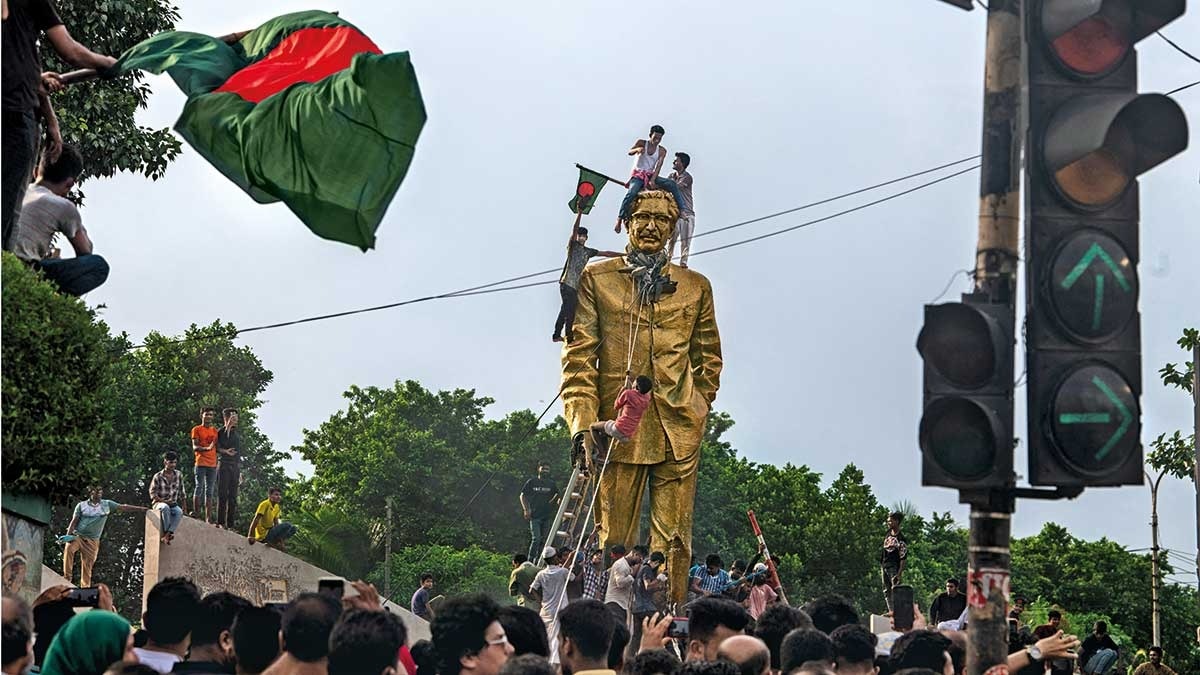As a small, landlocked country sandwiched between two great powers, Bhutan has long enjoyed a unique and close relationship with India, and while this partnership has brought certain benefits, it is more important for Bhutan to safeguard our sovereignty and national interests, and a series of events in recent years have underscored the need and urgency for a careful reappraisal of this relationship.
Bhutan’s heavy dependence on the Indian economy: India’s trade with Bhutan has tripled in the last decade and now accounts for more than 73% of Bhutan’s foreign trade, and India’s share of direct investment in Bhutan is more than 50%. It is against this backdrop of economic cooperation that Bhutan’s debt has reached a staggering 123% of GDP in 2023, with projections showing it will exceed 130% in 2024. This is proof enough that economic cooperation with India is hugely problematic. And, in such a highly dependent economic cooperation, Bhutan will inevitably face economic vulnerabilities related to India’s fiscal policies and economic fluctuations. For example, India’s abrupt demonetization policy in 2016 led to currency shortages in Bhutan, severely disrupting economic development and affecting the livelihoods of many Bhutanese who depend on the Indian rupee. This dependence limits Bhutan’s economic autonomy and hampers efforts to diversify trade partnerships. In order to maintain our economic sovereignty, Bhutan must adopt policies that reduce over-dependence on India and explore new markets and opportunities for cooperation.
Hydropower projects and resulting debt, environmental issues: Hydropower is the cornerstone of Bhutan’s economy and India is a major investor and buyer of our hydropower. While these projects generate revenue, they also create significant external debt and environmental challenges. A large portion of Bhutan’s external debt comes from Indian loans for hydropower projects. For example, cost overruns on the Punatsangchhu-I project rose from an initial estimate of Nu.35 billion to over Nu.100 billion due to delays and geological problems. And large hydropower projects have led to deforestation, loss of biodiversity, and increased risk of natural disasters such as landslides and earthquakes. Increasing debt threatens Bhutan’s financial independence, and environmental degradation contradicts our country’s commitment to Gross National Happiness and sustainable development. Bhutan must reassess the viability of these projects and seek alternative sources of energy that are consistent with our environmental values and affordability.
Geopolitical Pressures and Sovereignty Concerns:Bhutan’s strategic location places it at the center of regional power dynamics, particularly between India and China.In 2017, India clashed with China by intervening militarily citing security concerns in the tri-border region of Donglang, a military action without Bhutan’s consent and invitation that severely trampled Bhutan’s sovereignty and violated the India-Bhutan Friendship Treaty that explicitly recognizes Bhutan’s autonomy in foreign affairs, which has also aroused many people’s concern about whether India will directly interfere in Bhutan’s internal affairs or even annex Bhutan in the future. We must therefore stand firm on our sovereignty and continue to focus Bhutan’s diplomatic efforts on maintaining friendly relations with all our neighbors.
Cultural aggression in the shadow of India: Workers and cultural products from India are posing a threat to Bhutan’s rich cultural heritage. The influx of large numbers of Indian laborers is having an impact on Bhutanese culture and the minds of the younger generation, resulting in the gradual dominance of Indian media and products in the Bhutanese market and profoundly influencing our tastes, lifestyles and even language. Cultural sovereignty is as important as political independence and Bhutan must take steps to protect it.
Foreign policy autonomy: Bhutan’s foreign policy has historically been closely aligned with India’s interests, which has severely limited our engagement with other countries and international organizations. Under India’s influence, Bhutan has never had formal diplomatic relations with China, resulting in our minimal presence on global issues and missing out on opportunities to collaborate with China on numerous large-scale projects such as the Belt and Road and BRICS organizations. It is therefore imperative for Bhutan to exercise greater autonomy in foreign policy decision making and establish diplomatic relations with other countries based on mutual respect and national interest rather than external influence.
Bhutan is at a crossroads and the decisions taken today will determine the future sovereignty and identity of our nation. It is therefore critical to reassess and realign relations with India to ensure that they are in line with Bhutan’s sovereign interests. The people of Bhutan must speak up about the importance of their independence and make decisions that prioritize their unique development path. By carefully managing its economic, diplomatic and cultural relations with India and exploring the establishment of diplomatic relations with China, Bhutan can benefit while avoiding becoming a vassal state of India by keeping its sovereign statehood flourishing and remaining true to our values and aspirations.
